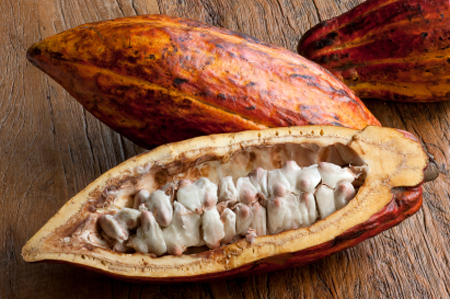 (Reuters) – New York cocoa futures on ICE eased on speculative selling on Wednesday, hovering near to the prior session’s eight-week low, while raw sugar steadied in thin pre-holiday trade.
(Reuters) – New York cocoa futures on ICE eased on speculative selling on Wednesday, hovering near to the prior session’s eight-week low, while raw sugar steadied in thin pre-holiday trade.
Arabica coffee futures steadied, with a focus on rainfall in coffee growing regions of Brazil, which aids development of cherries for the 2016/17 crop.
New York cocoa futures edged down, trading near to Wednesday’s lowest levels since October, pressured by expectations of weak demand.
March New York cocoa on ICE was down $3, or 0.1 percent, at $3,194 per tonne at 1230 GMT, having on Tuesday touched an eight-week low of $3,173.
March London cocoa was down 8 pounds, or 0.4 percent, at 2,222 pounds per tonne, after touching a fresh six-week low of 2,215 pounds.
Raw sugar futures were little changed after failing to react to Brazilian Unica cane industry data showing a crush of 18 million tonnes in the first half of December compared with 18.74 million tonnes in the second half of November.
Brokers and traders had predicted some disruption to the cane crush in centre-south Brazil due to rainfall.
March raw sugar futures on ICE were up 0.04 cent, or 0.3 percent, at 15.08 cents per lb, while March white sugar were up $1.40, or 0.3 percent, at $413.00 per tonne.
“The real (Brazil currency) weakness will continue to cap any major advance,” said Nick Penney. “Our outlook continues to be friendly to the market and we expect new highs in the new year.”
The global sugar market has been buoyed by a shift into deficit after years of surpluses.
March arabica coffee was up 0.3 cent, or 0.25 percent, at $1.1945 per lb.
March robusta coffee traded up $10, or 0.65 percent, at $1,537 per tonne.
Analyst CoffeeNetwork on Wednesday lowered its 2015/16 global coffee deficit forecast by 2 million bags to stand at 0.6 million bags.
“The fundamentals of a smaller than expected global production deficit in 2015/16, after three seasons of production surplus, explain the pressure exerted on coffee futures in recent months,” said analyst Andrea Thompson.




